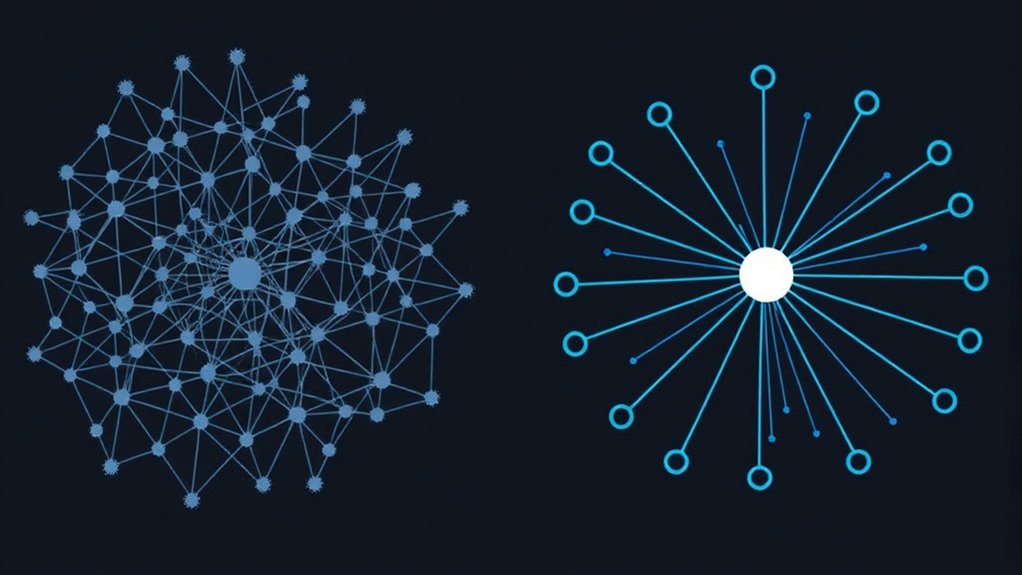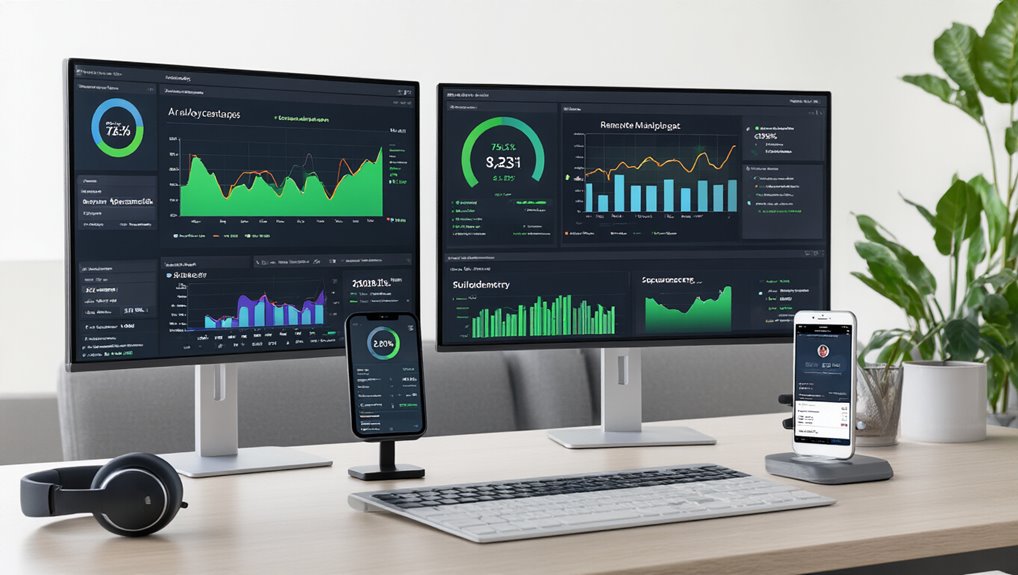Companies can effectively outsource core business processes through careful planning and implementation. Research shows 66% of American businesses already outsource at least one department, with access to qualified talent becoming the primary motivation. Success requires robust governance frameworks, advanced technology integration, and strategic vendor partnerships that align with business objectives. While challenges exist in maintaining control, organizations that properly leverage outsourcing often achieve enhanced operational efficiency and innovation. Further exploration reveals the specific strategies that make core process outsourcing work.

Nearly every organization today faces the critical decision of whether to outsource its core business processes, as the global Business Process Outsourcing (BPO) market surges toward USD 525.23 billion by 2030. The landscape of outsourcing has evolved considerably, with companies increasingly willing to delegate essential functions beyond traditional back-office operations. This shift is evidenced by the expanding scope of outsourced services into areas like sales, marketing, and R&D.
Business Process Outsourcing transforms from back-office support to strategic partnerships, revolutionizing how companies manage essential operations worldwide.
The motivation for outsourcing core processes has transformed remarkably. While cost reduction historically drove 70% of outsourcing decisions in 2020, this figure dropped to 34% by 2024. Companies now prioritize access to qualified talent, with 42% citing this as their primary driver. This shift reflects the growing challenge of finding skilled professionals, as 74% of employers report difficulty securing necessary talent internally. Sixty-six percent of American businesses have implemented outsourcing in at least one department.
Technology plays a pivotal role in enabling effective core process outsourcing. Advanced solutions like Robotic Process Automation (RPA), Artificial Intelligence, and cloud computing have revolutionized service delivery models. These technologies enhance efficiency and enable more sophisticated outsourcing arrangements, particularly in critical sectors like banking and finance. Ninety percent of companies consider cloud computing essential for their outsourcing operations.
The adoption of cloud-based services has made core process outsourcing more viable by offering scalability and reducing infrastructure costs. Companies that focus on their core competencies while outsourcing other functions often see improved service quality and innovation.
Organizations must carefully weigh the benefits against potential risks when considering core process outsourcing. The advantages include enhanced operational efficiency, access to global talent pools, and improved focus on strategic initiatives. However, companies must navigate challenges such as maintaining control over essential functions and managing vendor relationships effectively.
Success in core process outsourcing often depends on selecting the right partner and establishing robust governance frameworks.
The future of core process outsourcing appears promising, with IT outsourcing alone expected to exceed $500 billion by 2025. Financial services, IT, and telecommunications industries lead this growth, demonstrating that even traditionally conservative sectors are embracing outsourcing for core functions.
As technology continues to advance and talent demands evolve, organizations that effectively leverage outsourcing for core processes position themselves for sustained competitive advantage.
Frequently Asked Questions
How Do You Identify Which Core Processes Are Suitable for Outsourcing?
Organizations should evaluate core processes through a systematic assessment framework. Key criteria include:
- Process complexity and standardization potential
- Strategic importance and competitive advantage
- Data sensitivity and security requirements
- Cost-benefit analysis results
- Impact on customer value
Suitable processes typically have clear metrics, defined workflows, and minimal strategic risk.
Companies should conduct pilot tests before full implementation and maintain strong vendor oversight to guarantee successful outsourcing outcomes.
What Security Measures Protect Sensitive Data During Core Process Outsourcing?
Security measures for protecting sensitive data during process outsourcing include multi-layered defenses.
Access controls with multi-factor authentication restrict data to authorized personnel, while end-to-end encryption safeguards information both at rest and in transit.
Regular employee training on security protocols and threat awareness reduces human error risks.
Compliance with international standards like ISO 27001 and SOC 2, combined with regular security audits, guarantees ongoing data protection effectiveness.
Can Outsourcing Core Processes Negatively Impact Company Culture and Employee Morale?
Outsourcing core processes greatly impacts company culture and employee morale through multiple channels.
Research shows 62% of employees experience increased stress due to job security concerns. Team dynamics suffer as established relationships break down, leading to reduced collaboration and workplace cohesion.
The sense of organizational identity weakens, with 48% of employees reporting decreased job satisfaction. Mental health issues may emerge, including anxiety and burnout, while productivity often declines due to heightened psychological pressure.
What Are the Hidden Costs Associated With Core Business Process Outsourcing?
Core business process outsourcing involves significant hidden costs beyond basic service fees.
Initial ramp-up expenses include team training, documentation creation, and system integration.
Communication challenges across time zones and cultures often lead to costly delays and rework.
Security compliance and quality control require substantial ongoing investment.
External disruptions like natural disasters or political instability can trigger unexpected expenses, while continuous vendor management demands considerable internal resources.
How Long Does It Typically Take to Transition Core Processes to Outsourcing?
Shifting core processes to outsourcing typically takes 6 months to 2 years, depending on complexity.
The journey begins with a 1-3 month planning phase, followed by 3-9 months of implementation and migration. Knowledge transfer and system integration consume the bulk of this time.
A final 3-6 month stabilization period guarantees peak performance. More complex processes like finance and IT infrastructure generally require longer shifting periods than simpler operations.









